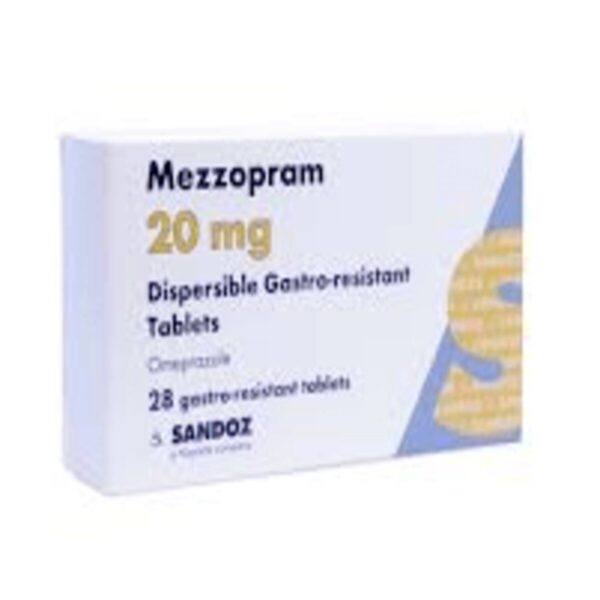- Phenytoin Sodium 25mg Capsules
- Phenytoin Sodium 50mg Capsules
- Phenytoin Sodium 100mg Capsules
- Phenytoin Sodium 300mg Capsules
Phenytoin Sodium Capsules
Explore the tailored flexibility of Phenytoin Sodium Capsules, available in four strengths to match your specific medical needs. Whether you require a lower dose for mild control or a higher dosage for intensive care, Phenytoin Capsules offer an effective solution across a spectrum of needs. As a pivotal anti-epileptic medication, Phenytoin Sodium Capsules are designed to manage and control seizures, aiding patients with various forms of epilepsy, and can also be used in treating and managing trigeminal neuralgia (facial nerve pain). Each strength is tailored to provide precise dosing to meet individual treatment requirements effectively.
Available Strengths:
- Phenytoin Sodium 25mg Capsules
- Phenytoin Sodium 50mg Capsules
- Phenytoin Sodium 100mg Capsules
- Phenytoin Sodium 300mg Capsules
Product Benefits:
- Customizable Dosing: Choose from four available strengths to ensure tailored treatment aligned with your specific health needs.
- Seizure Management: Helps control and prevent seizures, offering you stability and improving daily functioning.
- Versatile Use: Suitable for both seizure management and relief from trigeminal neuralgia, providing comprehensive neurological care.
- Trusted Efficacy: Widely recognized and researched, Phenytoin is a cornerstone in neurology for its effectiveness and reliability.
How to Use:
- Individualized Treatment: Start with the dose recommended by your healthcare provider, and adjust according to your medical response and therapeutic needs.
- Administration: Swallow capsules whole with water; do not crush or chew. They can be taken with or without food.
- Consistent Usage: To achieve the best results, maintain a consistent routine, taking your capsules at the same time each day.
Why Choose Phenytoin Sodium Capsules? With the option to choose from 25mg to 300mg, Phenytoin Capsules are ideal for patients needing adjustable dosages for their seizure control or pain management plans. The flexibility in strength allows for gradual adjustments by healthcare providers, ensuring each patient receives the optimal dose for their condition.
Disclaimer: It is important to consult with a healthcare provider for a tailored treatment plan and to understand the potential side effects before starting any new medication regimen.
| Brand | |
|---|---|
| Strenght | 100mg Capsules, 84 Capsules, 25mg Capsules, 28 Capsules, 50mg Capsules, 28 Capsules, 300mg Capsules, 28 Capsules |
Brand
Phenytoin
How To Use
How to take Phenytoin Sodium Capsules
Always take this medicine exactly as your doctor or pharmacist has told you. Check with your doctor or pharmacist if you are not sure. It is best to take Phenytoin capsules at the same time each day. Swallow the tablets whole, with plenty of water
Product Details
What you need to know before you take Phenytoin Sodium Capsules
Do not take Phenytoin tablets • if you are allergic to phenytoin, or any of the other ingredients of this medicine (listed in section 6). • if you are allergic to other medicines with a similar chemical structure to phenytoin (e.g. hydantoins) Warnings and precautions Talk to your doctor or pharmacist before taking Phenytoin sodium. Medicines are not always suitable for everyone. Your doctor needs to know before you take phenytoin if you suffer from or have suffered in the past from any of the following conditions: • liver disease • kidney disease • Porphyria (an inherited disease that affects haemoglobin biosynthesis) The following symptoms have been reported in some people treated with phenytoin at recommended doses: • shortness of breath, becoming unconscious, or unresponsive. All can be the symptoms of the sudden, unexpected stopping of the heart (known as cardiac arrest). If you or someone you know is taking Phenytoin and experiencing these symptoms, seek immediate medical support. • severe allergic reactions like swelling of the eyelids, face, lips, mouth and / or throat, as well as the tongue may cause difficulty in breathing or swallowing (known as angioedema) and sudden wheeziness. All these can be symptoms leading to a sudden, unexpected stopping of the heart (known as cardiac arrest). Stop taking your medicine and seek immediate medical help. • slower heartbeat (known as bradycardia). A small number of people being treated with antiepileptics such as phenytoin sodium have had thoughts of harming or killing themselves. If at any time you have these thoughts, immediately contact your doctor. Potentially life-threatening skin rashes (Stevens-Johnson syndrome, toxic epidermal necrolysis) have been reported with the use of Phenytoin Tablets, appearing initially as reddish target-like spots or circular patches often with central blisters on the trunk. Additional signs to look for include ulcers in the mouth, throat, nose, genitals and conjunctivitis (red and swollen eyes). These potentially life-threatening skin rashes are often accompanied by flu-like symptoms, including fever at the initiation of treatment. The rash may progress to widespread blistering or peeling of the skin. The highest risk for occurrence of serious skin reactions is within the first weeks of treatment. If you have developed StevensJohnson syndrome or toxic epidermal necrolysis with the use of Phenytoin Tablets, you must not be re-started on Phenytoin Tablets at any time. If you develop a rash or these skin symptoms, stop taking Phenytoin Tablets, seek urgent advice from a doctor and tell them that you are taking this medicine. Consult your doctor before permanently discontinuing Phenytoin Tablets. If you suddenly stop taking this medicine you may have a seizure. Talk to you doctor before taking Phenytoin tablets if you are of Taiwanese, Japanese, Malaysian or Thai origin and tests have shown that you carry the genetic variant CYP2C9*3. Serious skin side effects can rarely occur during treatment with phenytoin. This risk may be associated with a variant in genes in a subject with Chinese or Thai origin. If you are of such origin and have been tested previously carrying this genetic variant (HLA-B* 1502), discuss this with your doctor before taking Phenytoin tablets. There is a risk of harm to the unborn child if Phenytoin tablets are used during pregnancy. Women of childbearing age should use effective contraception during treatment with Phenytoin tablets (see Pregnancy, contraception in women and breast-feeding). Other medicines and Phenytoin tablets Tell your doctor or pharmacist if you are taking, have recently taken or might take any other medicines. Some medicines can affect the way Phenytoin works, or Phenytoin itself can reduce the effectiveness of other medicines taken at the same time. These include: • Medicines used for heart and circulation problems (amiodarone, digoxin, furosemide, reserpine, ticagrelor, warfarin, and calcium channel blockers e.g. diltiazem, mexiletine, nicardipine, nifedipine, nimodipine, disopyramide and verapamil) • Medicines used to lower blood cholesterol, (e.g. atorvastatin, fluvastatin and simvastatin) • Medicines used for epilepsy (carbamazepine, lacosamide, lamotrigine, oxcarbazepine, phenobarbital, sodium valproate, topiramate and valproic acid, succinimides e.g. ethosuximide and vigabatrin) • Medicines used to treat fungal infections (e.g. amphotericin B, fluconazole, itraconazole, ketoconazole, miconazole, posaconazole and voriconazole) • Medicines used for tuberculosis and other infections (chloramphenicol, clarithromycin, isoniazid, rifampicin, sulphonamides, sulfadiazine, sulfamethoxazole-trimethoprim, doxycycline, ciprofloxacin, efavirenz, fosamprenavir, indinavir, lopinavir/ritonavir, ritonavir and saquinavir). • Medicines used for stomach ulcers (omeprazole, sucralfate, the medicines known as H2 antagonists e.g. cimetidine and some antacids) • Medicines used for asthma and bronchitis (theophylline) • Medicines used for pain and inflammation (salicylates e.g.aspirin and steroids) • Medicines used for sleeplessness, depression and psychiatric disorders (chlordiazepoxide, clozapine, diazepam, disulfiram, fluoxetine, methylphenidate, paroxetine, phenothiazines, trazodone, tricyclic antidepressants, fluvoxamine, quetiapine and sertraline) • Medicines used for diabetes (tolbutamide) • Some hormone replacement therapies (oestrogens), oral contraceptives (the birth control pill) • Medicines used for organ and tissue transplants, to prevent rejection (ciclosporin and tacrolimus). • Medicines used for cancer (antineoplastic agents) e.g. bleomycin, capecitabine, carboplatin, cisplatin, doxorubicin, fluorouracil and methotrexate) • Muscle relaxants used for surgery (neuromuscular blockers), some anaesthetic drugs (methadone) • Medicines used as anticoagulants (e.g. rivaroxaban, dabigatran, apixaban, edoxaban) • Some products available without a prescription (folic acid, theophylline, St John’s Wort, vitamin D) Your doctor may need to test the amount of Phenytoin in your blood to help decide if any of these medicines are affecting your treatment. The herbal preparation St John’s wort (Hypericum perforatum) should not be taken at the same time as this medicine. If you already take St John’s wort, consult your doctor before stopping the St John’s wort preparation. Phenytoin tablets may also interfere with certain laboratory tests that you may be given. Phenytoin with food, drink and alcohol Phenytoin tablets can be taken before or after food and drinks. Drinking a lot of alcohol can also affect the concentration of Phenytoin in your blood. Pregnancy, contraception in women and breast-feeding Pregnancy What you should know about the use of antiepileptic drugs in pregnancy If you are pregnant, or think you may be pregnant, you must tell your doctor straight away and discuss possible risks the epilepsy medicine you are taking might pose to your unborn baby. If you are planning to become pregnant you should discuss your epilepsy treatment with your doctor as early as possible before you become pregnant. You should not stop your treatment without discussing this with your doctor. Suddenly stopping may lead to breakthrough seizures which may harm you and your unborn baby. It is important that your epilepsy is well controlled. Taking phenytoin during pregnancy increases the chance that the baby may have a physical birth abnormality. Studies with women treated with phenytoin for epilepsy during pregnancy have shown that around 6 babies in every 100 will have serious physical birth abnormalities. This compares to 2-3 babies in every 100 born to women who don’t have epilepsy. The most common types of serious physical birth abnormalities (major congenital malformations) reported for phenytoin include abnormalities of the lip and palate, heart, skull, nail and finger disorders and growth abnormalities. Some of these may occur together as part of a foetal hydantoin syndrome. Taking more than one epilepsy medicine at the same time may also increase the risk of physical birth abnormalities. Where possible, your doctor will consider using one epilepsy medicine only to control your epilepsy. Your doctor may advise you to take folic acid if you’re planning to become pregnant and while you’re pregnant. Your doctor may adjust your epilepsy medicine when you take folic acid. Some studies observed that taking phenytoin during pregnancy increases the chance that the baby may have problems affecting learning and thinking abilities. Other side-effects that may occur are: • Effects on your nervous system: Unusual eye movements, unsteadiness, difficulty in controlling movements, shaking, abnormal or uncoordinated movements, slurred speech, confusion, pins and needles or numbness, drowsiness, dizziness, vertigo, sleeplessness, nervousness, twitching muscles, headaches and taste change. • Effects on your skin: skin rash including measles-like reactions which are mild and hives (raised, itchy areas of skin). • Effects on your stomach and intestines: feeling sick, being sick and constipation. • Effects on your blood and lymph system: swelling of the lymph glands, a decrease in the number of a type of red blood cell (pure red cell aplasia). • Effects on your liver and kidney: inflammation of the kidneys and liver, liver damage (seen as yellowing of the skin and whites of the eye). • Effects on your reproductive system: changes in the shape of the penis, painful erection. • Effects on your hands, face and body: changes in the hands with difficulty in straightening the fingers, changes in facial features, enlarged lips or gums, increased or abnormal body or facial hair. • Effects on medical tests: increased levels of blood sugar, or decreased levels of blood calcium, folic acid and vitamin D and abnormal thyroid function test results. If you also do not get enough vitamin D in your diet or from exposure to sunlight, you may suffer from bone pain or fractures. • Effects on your respiratory system: problems breathing, inflammation of the lining of the lung. • Effects on your immune system: problems with the body’s defence against infection, inflammation of the wall of the arteries. • Effects on your bones: There have been reports of bone disorders including osteopenia and osteoporosis (thinning of the bone) and fractures. Check with your doctor or pharmacist if you are on long-term antiepileptic medication, have a history of osteoporosis, or take steroids. Reporting of side effects If you get any side effects, talk to your doctor or pharmacist. This includes any possible side effects not listed in this leaflet. You can also report side effects directly via the Yellow Card Scheme at: www.mhra.gov.uk/yellowcard or search for MHRA Yellow Card in the Google Play or Apple App Store. By reporting side effects you can help provide more information on the safety of this medicine. 5. How to store Phenytoin Sodium Milpharm tablets Keep this medicine out of the sight and reach of children Store in the original package in order to protect from moisture. Keep the HDPE bottle tightly closed. Do not use this medicine after the expiry date (EXP) which is stated on the carton and foil. The expiry date refers to the last day of that month. Do not throw away any medicines via waste water or household waste. Ask your pharmacist how to throw away medicines you no longer use. These measures will help protect the environment. 6. Contents of the pack and other information What Phenytoin tablets contain • The active substance is Phenytoin sodium. Each film-coated tablet contains 100 mg of phenytoin sodium. • The other ingredients are Tablet core: Mannitol Crospovidone Magnesium stearate Croscarmellose sodium Tablet coat: Hypromellose Macrogol 400 Titanium dioxide Sodium lauryl sulfate What Phenytoin tablets look like and contents of the pack White to off-white, oval shaped, film-coated tablets debossed with ‘C’ on one side and ‘70’ on the other side. Polyamide/Aluminium/PVC//Aluminium blister pack: 10, 14, 20, 28, 30, 50, 60, 84, 100, 112, 200 and 250 film-coated tablets HDPE container with a polypropylene closure and silica gel dessicant: 30 film-coated tablets Not all pack sizes may be marketed. Marketing Authorisation Holder Milpharm Limited Ares, Odyssey Business Park West End Road South Ruislip HA4 6QD United Kingdom Manufacturer APL Swift Services (Malta) Limited HF26, Hal Far Industrial Estate, Hal Far Birzebbugia, BBG 3000 Malta or Milpharm Limited Ares, Odyssey Business Park West End Road South Ruislip HA4 6QD United Kingdom This leaflet was last revised in 09/2022. If you take Phenytoin tablets during pregnancy, your baby is also at risk for bleeding problems right after birth. Your doctor may give you and your baby a medicine to prevent this. Moreover, your child should be closely monitored. Contraception in women If you are of childbearing age and are not planning a pregnancy, you should use effective contraception during treatment with Phenytoin tablets. Phenytoin may affect how hormonal contraceptives, such as the contraceptive (birth control) pill, work and make them less effective at preventing pregnancy. Talk to your doctor, who will discuss with you the most suitable type of contraception to use while you are taking phenytoin. Breast-feeding Phenytoin Tablets passes into breast milk. You should not take Phenytoin Tablets if you are breast-feeding. Driving and using machines Phenytoin may cause dizziness or drowsiness, especially during the first few weeks of treatment. If you experience these symptoms do not drive or use any tools or machinery. Phenytoin Tablets contains Sodium. This medicine contains less than 1 mmol sodium (23 mg) per tablet, that is to say essentially ‘sodium-free’.
Only logged in customers who have purchased this product may leave a review.
Questions and answers of the customers
There are no questions yet, be the first to ask something for this product.
You Might Also Like
EPANUTIN SUSP 30MG/5ML
Learn More£8.50
- Availability: in stock
Tegretol Liquid – Carbamazepine Liquid 100mg/5ml, 300ml Experience the versatile benefits of Tegretol Liquid, a caramel-tasting white suspension that offers an alternative to tablets for those who prefer or require liquid medication. Formulated with Carbamazepine 100mg/5ml as the active ingredient, Tegretol Liquid is a potent anti-convulsant that efficiently prevents epileptic fits and manages a variety […]
Learn More£10.50
- Availability: in stock
EPANUTIN READY MIXED PARENTERAL AMP
Learn More£73.19
- Availability: out of stock
EPANUTIN INFATAB 50MG
Learn More£20.25
- Availability: in stock
Phenytoin Sodium 100mg Tablets, 28 Tablets Unlock a new level of seizure management with Phenytoin Sodium 100mg Tablets, a cornerstone in anti-epileptic therapy. As part of a group of medicines known for their efficacy in treating epilepsy, Phenytoin tablets are specifically formulated to control a wide range of epileptic conditions. Whether used to manage seizures […]
Learn More£12.50
- Availability: in stock
Other Products From This Seller
Original price was: £31.00.£10.95Current price is: £10.95.
Chopard Wish Eau de Parfum 30ml Sweet and Oriental Fragrance for Women Indulge in elegance with Chopard Wish Eau de Parfum, 30ml, a sweet and oriental fragrance for women that exudes sophistication and charm. This luxurious scent by Chopard is inspired by the allure of wishes and dreams, blending warm and sensual notes for a […]
Learn MoreOriginal price was: £31.00.£10.95Current price is: £10.95.
- Availability: in stock
Original price was: £84.00.£26.95Current price is: £26.95.
Vera Wang Lovestruck Eau de Parfum 100ml Romantic Floral and Feminine Fragrance Celebrate romance and femininity with Vera Wang Lovestruck Eau de Parfum, 100ml, a romantic floral fragrance for women inspired by love at first sight. This enchanting scent captures the essence of passion and charm with a blend of delicate florals and sweet fruity […]
Learn MoreOriginal price was: £84.00.£26.95Current price is: £26.95.
- Availability: in stock
Original price was: £25.00.£9.95Current price is: £9.95.
Gloria Vanderbilt Vanderbilt EDT Spray, 100ml Timeless Floral Elegance Embrace timeless elegance with Gloria Vanderbilt Vanderbilt Eau De Toilette Spray, 100ml, a sophisticated floral fragrance for women that captures grace, femininity, and charm. Designed for confident and classic women, this iconic scent by Gloria Vanderbilt combines delicate floral notes with warm undertones for a long-lasting […]
Learn MoreOriginal price was: £25.00.£9.95Current price is: £9.95.
- Availability: in stock
Original price was: £34.00.£15.95Current price is: £15.95.
Elizabeth Arden Splendor Eau De Parfum, 125 ml Sophisticated Floral Fragrance Indulge in timeless elegance with Elizabeth Arden Splendor Eau De Parfum, 125ml, a sophisticated floral fragrance for women that exudes grace and charm. Inspired by moments of pure splendor, this iconic scent by Elizabeth Arden combines floral and woody notes for a captivating and […]
Learn MoreOriginal price was: £34.00.£15.95Current price is: £15.95.
- Availability: in stock
Original price was: £44.00.£19.95Current price is: £19.95.
Elizabeth Arden Red Door Eau De Toilette Spray 50ml Timeless Floral Elegance Step into timeless elegance with Elizabeth Arden Red Door Eau De Toilette Spray, 50ml, a classic floral fragrance for women that has become an icon of sophistication. Inspired by the legendary Red Door Spa, this luxurious scent captures the essence of femininity with […]
Learn MoreOriginal price was: £44.00.£19.95Current price is: £19.95.
- Availability: in stock
Original price was: £55.00.£19.95Current price is: £19.95.
Estee Lauder Pleasures EDP 30ml Fresh and Floral Fragrance for Women Experience the timeless elegance of Estee Lauder Pleasures Eau de Parfum, 30ml, a fresh and floral fragrance for women that captures the beauty of life’s simplest pleasures. This classic scent by Estee Lauder is designed for modern, sophisticated women who appreciate light, airy fragrances. […]
Learn MoreOriginal price was: £55.00.£19.95Current price is: £19.95.
- Availability: in stock
Original price was: £34.99.£19.95Current price is: £19.95.
Sarah Jessica Parker Lovely You Eau de Parfum Spray 100ml Sophisticated Floral and Musky Fragrance Step into timeless elegance with Sarah Jessica Parker Lovely You Eau de Parfum Spray, 100ml, a floral and musky fragrance for women that embodies sophistication and modernity. Created by Sarah Jessica Parker, this iconic scent celebrates femininity with a delicate […]
Learn MoreOriginal price was: £34.99.£19.95Current price is: £19.95.
- Availability: in stock
Original price was: £47.00.£29.95Current price is: £29.95.
Kenzo Flower Eau De Toilette Spray 30ml Fresh and Floral Fragrance for Women Experience the delicate beauty of nature with Kenzo Flower Eau De Toilette Spray, 30ml, a fresh and floral fragrance for women inspired by the elegance of the red poppy. This iconic scent combines floral and powdery notes to create a delicate and […]
Learn MoreOriginal price was: £47.00.£29.95Current price is: £29.95.
- Availability: in stock
Original price was: £47.00.£29.95Current price is: £29.95.
Jimmy Choo Eau de Parfum 40ml Sweet and Floral Fragrance for Women Step into a world of luxury and confidence with Jimmy Choo Eau de Parfum, 40ml, a sweet and floral fragrance for women that embodies modern glamour. Designed for women who exude confidence and style, this Jimmy Choo perfume for women blends fruity and […]
Learn MoreOriginal price was: £47.00.£29.95Current price is: £29.95.
- Availability: in stock
Original price was: £52.00.£23.95Current price is: £23.95.
Issey Miyake L’Eau d’Issey Pure Nectar Eau de Parfum Spray, 30ml Floral and Aquatic Elegance Discover the purity of nature with Issey Miyake L’Eau d’Issey Pure Nectar Eau de Parfum Spray, 30ml, a floral and aquatic fragrance for women that encapsulates elegance and sophistication. This Issey Miyake perfume for women combines fresh and delicate notes […]
Learn MoreOriginal price was: £52.00.£23.95Current price is: £23.95.
- Availability: in stock
























Reviews
There are no reviews yet